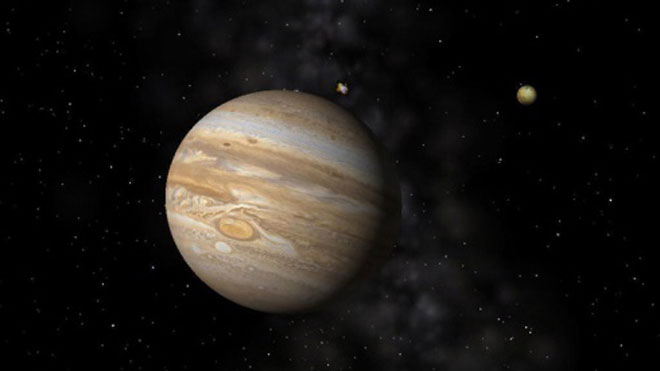Jupiter - The largest planet in the solar system is melting
The latest simulation of scientists has shown that Jupiter's rock core is liquefied, melting and mixing with other components in the core. With this new data, astronomers hope to better explain the case of a strange planet discovered outside the recent solar system.
What is Jupiter?
or Jupiter is the fifth planet from the Sun and is the largest planet in the Solar System. It is a giant gas planet with a mass of one-thousandth of the Sun but two and a half times the total mass of all the other planets in the Solar System combined. Jupiter is classified as a giant gas planet along with Saturn, (Uranus and Neptune are classified into giant ice planets).
Jupiter is melting
'This is really an important piece in understanding what is happening in the planetary core' Jonathan Fortney ' under the University of California Santa Cruz.
The theory that simulates planet formation suggests that Jupiter is a giant gas planet composed primarily of hydrogen and helium, surrounding a solid core containing heavier elements. Even so, there is growing evidence that inside Jupiter's giant gas layer is a messy mixture of elements that do not have the right boundaries.

Researchers are working on the hypothesis that the planet is stacked together, based on calculations of Jupiter's core environment because the actual conditions are too difficult to replicate. Wilson and his colleagues used a computer program to simulate temperatures above 7,000 degrees Celsius and 40 million times the pressure of Earth air. These conditions are thought to be below the actual conditions inside Jupiter's core. However, scientists have discovered magnesium oxide - an important compound that can be found in Jupiter's core that will liquefy under relatively tame conditions.
Gas core components may have difficulty reaching the crust due to the dispersion of double convection - a process that can be found in the Earth's ocean. When salt accumulates at the bottom of the ocean, its density keeps it from mixing with the upper layers. In the same case, heavy elements in Jupiter's core will have trouble getting enough energy to Move up and out. Scientists are not sure how many problems will affect the transformation process within Jupiter and the question is "What will this process be like" ?
- What if we try to land on Jupiter?
- Overview of Jupiter
- Jupiter - The Elder of the Solar System
- Jupiter does not rotate around the sun
- Jupiter will reach its brightest today
- Discovering the twin planet of Jupiter
- The mystery of crazy lightning storms on Jupiter has a solution!
- Mysterious objects crash into Jupiter
- Discovering new planets is 13 times larger than Jupiter
- Stunning Jupiter through the latest image of the Juno ship
- Detection of the Solar System may contain Earth-like planets
- Juno spacecraft completes halfway to Jupiter
 Van Allen's belt and evidence that the Apollo 11 mission to the Moon was myth
Van Allen's belt and evidence that the Apollo 11 mission to the Moon was myth The levels of civilization in the universe (Kardashev scale)
The levels of civilization in the universe (Kardashev scale) Today Mars, the sun and the Earth are aligned
Today Mars, the sun and the Earth are aligned The Amazon owner announced a secret plan to build a space base for thousands of people
The Amazon owner announced a secret plan to build a space base for thousands of people